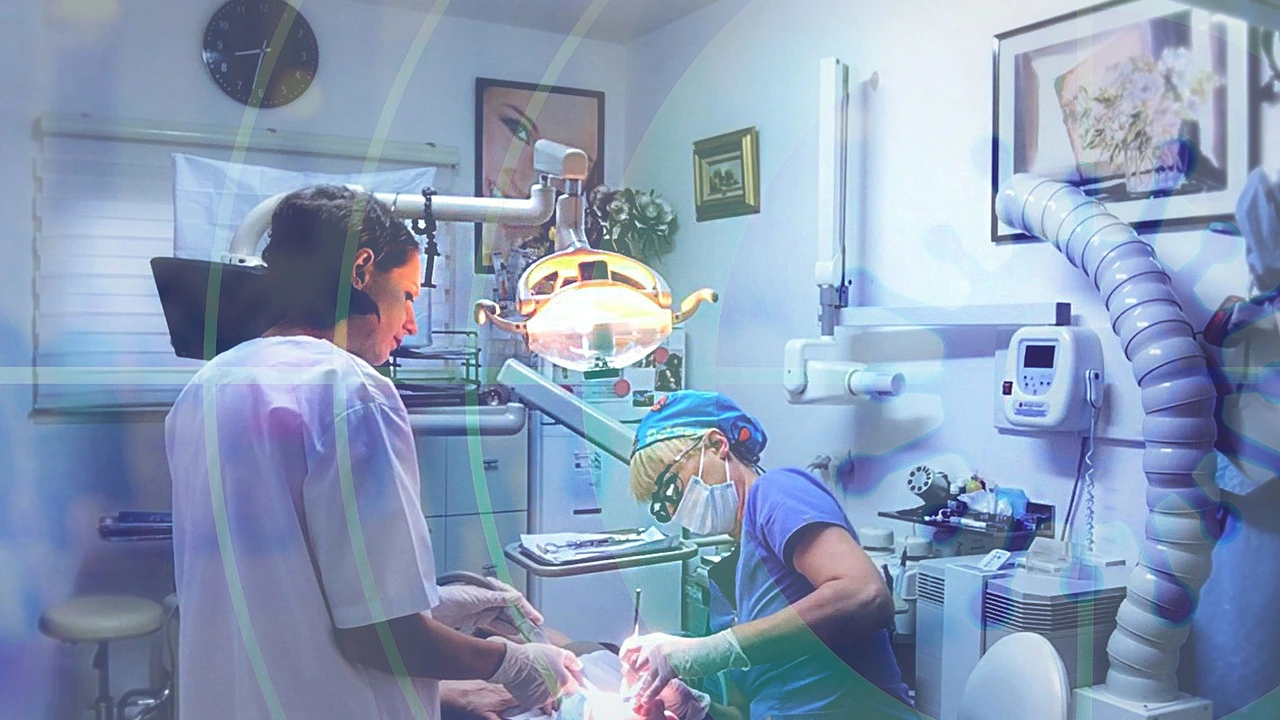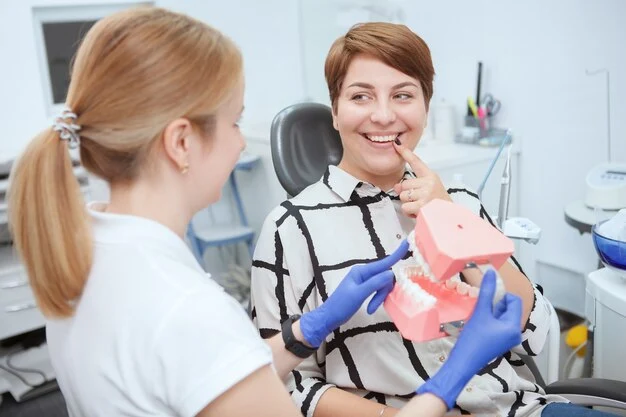Are you considering dental implants in Scotland? If so, you’re not alone. Dental implants have become popular for individuals seeking to restore their smiles and oral health. However, before you start on this transformative journey, it’s essential to understand the factors associated with Dental Implants Cost in Scotland. In this blog, we’ll dive into everything you need to know about dental implant costs in Scotland, helping you make an informed decision for your dental care.
The Basics of Dental Implants
Before we dive into the cost details, let’s first establish a fundamental understanding of dental implants. Dental implants are artificial tooth roots surgically placed into the jawbone. They serve as a sturdy foundation for replacement teeth, which can be individual crowns, bridges, or even dentures.
Why Choose Dental Implants?
Dental implants offer numerous benefits, making them a preferred choice for many individuals:
Natural Look and Feel
Dental implants closely mimic the appearance and function of natural teeth. Unlike traditional dentures, which can look artificial and may not fit perfectly, implants are designed to blend seamlessly with your existing teeth. They are custom-crafted to match the color, shape, and size of your natural teeth, ensuring a harmonious smile. Furthermore, because implants are anchored securely in the jawbone, they don’t slip or move when you speak or eat. This stability provides a natural feel and comfort that’s unmatched by other tooth replacement options.
Durability
Dental implants are renowned for their exceptional durability. With proper care and maintenance, dental implants have the potential to last a lifetime. This longevity is due to the fact that implants are made from high-quality materials like titanium, which is biocompatible and resistant to corrosion. Unlike dental bridges or dentures, which may need periodic adjustments or replacements, dental implants offer a long-term solution for tooth loss. This means you can enjoy a stable and reliable tooth replacement without the worry of frequent repairs or replacements.
Improved Oral Health
Dental implants play a crucial role in preserving your overall oral health. When a natural tooth is lost, the underlying jawbone can start to deteriorate over time. Dental implants, however, stimulate the jawbone in a way that mimics the natural tooth root. This stimulation helps prevent bone loss and maintains the integrity of your jaw structure. Additionally, because dental implants are standalone units, they don’t rely on adjacent teeth for support, as dental bridges do. This means that your natural teeth remain untouched and unaffected, promoting better oral health.
Enhanced Confidence
One of the most significant advantages of dental implants is the restoration of self-confidence. Tooth loss can have a profound impact on a person’s self-esteem and quality of life. It can lead to self-consciousness about smiling, speaking, or eating in public. Dental implants provide a reliable and aesthetically pleasing solution, allowing you to regain the confidence to smile openly, eat your favorite foods without restrictions, and speak without hesitation. This newfound self-assuredness can positively impact various aspects of your life, including social interactions and professional opportunities.
Now that you understand why dental implants are a popular choice, let’s explore the cost factors in Scotland.
Factors Influencing Dental Implants Cost in Scotland
The cost of dental implants can vary widely based on several factors:
Number of Implants
The number of dental implants required plays a significant role in determining the overall cost of the procedure. Whether you need a single implant to replace a missing tooth or a full set of implants for complete restoration, the more implants you need, the higher the cost. Your dentist will assess your specific case and provide a cost estimate based on the number of implants required to achieve your desired outcome.
Implant Material
Dental implants can be crafted from different materials, with titanium and zirconia being the most common choices. Titanium implants are cost-effective and widely used due to their proven durability and biocompatibility. On the other hand, zirconia implants, while pricier, offer aesthetic advantages as they closely resemble the appearance of natural teeth. The choice of implant material can impact the overall cost, and your dentist can help you decide which material suits your needs and budget.
Dental Clinic Location
The geographic location of the dental clinic can have a significant impact on the cost of dental implants. In urban areas like Edinburgh and Glasgow, where the cost of living and operating a practice is generally higher, dental implant prices may be somewhat elevated compared to rural areas. It’s essential to consider the location when budgeting for your implant procedure.
Additional Procedures
In some cases, patients may require additional procedures before dental implants can be placed. These procedures, such as bone grafting or sinus lifts, are necessary to prepare the jawbone for implant placement. While these procedures add to the overall cost, they are essential for ensuring the long-term success of the implants. Your dentist will evaluate your oral health and determine if any additional procedures are needed.
Dentist’s Expertise
The experience and expertise of the implant dentist can influence the cost of the procedure. Highly skilled and experienced implant dentists often charge higher fees due to their proficiency in ensuring a successful and long-lasting outcome. While the cost may be higher, the expertise they bring to the procedure can provide added confidence in the quality of care you receive.
Type of Restoration
The type of restoration you choose to accompany your dental implants will also impact the overall cost. Whether you opt for a single crown, a bridge, or a denture, each restoration type comes with its own associated cost. Your dentist will discuss the available options with you, considering factors such as your oral health needs and budget.
Insurance Coverage
It’s essential to check with your dental insurance provider to understand whether they provide any coverage for dental implant procedures. While many insurance policies do not fully cover implant costs, some may offer partial coverage or reimbursement for specific aspects of the treatment. Knowing what your insurance covers can help you plan for the financial aspect of the procedure more effectively.
Average Dental Implants Cost in Scotland
The cost of dental implants in Scotland can vary depending on several factors, as mentioned earlier. However, as a rough estimate, the average price for a single dental implant in Scotland typically falls within the range of £1,500 to £2,500. This cost estimate generally includes three main components:
Implant Surgery

The surgical placement of the dental implant into the jawbone is a critical part of the procedure. This includes the cost of the implant itself and the surgical expertise required to perform the procedure safely and effectively.
Abutment
An abutment is a connector piece that attaches to the implant and protrudes above the gumline. It serves as a foundation for the crown or other restoration to be placed. The cost of the abutment is typically included in the overall estimate.
Crown
The crown is the visible, tooth-like part of the implant that sits above the gumline. It is custom-made to match the color, size, and shape of your natural teeth, providing a seamless and natural appearance. The cost of the crown is also part of the estimated price.
It’s essential to note that this average cost is a general guideline and can vary based on individual circumstances and the factors mentioned earlier. For example, if you require multiple implants or additional procedures such as bone grafting, the overall cost may be higher.
Financing Options
Recognizing that dental implant procedures can be a significant financial investment, many dental clinics in Scotland offer financing options to make the treatment more accessible and affordable for patients. These financing options typically involve:
Payment Plans
Dental clinics may offer flexible payment plans that allow you to spread the cost of the treatment over a period of time. This can be particularly helpful for patients who prefer to budget for their dental care on a monthly basis.
Interest-Free Financing
Some clinics provide interest-free financing options, where you can make monthly payments without incurring additional interest charges. This can be a cost-effective way to manage the expenses associated with dental implants.
Third-Party Financing
In some cases, dental clinics may partner with third-party financing companies that specialize in healthcare financing. These companies can offer a range of payment plans to suit your needs.
Insurance Coordination
Dental clinics may also assist you in coordinating with your dental insurance provider to maximize any available coverage for implant procedures. While dental insurance may not cover the entire cost, every bit of coverage can help reduce your out-of-pocket expenses.
Conclusion
Dental implants are a valuable investment in your oral health and overall well-being. While the cost of dental implants in Scotland can vary based on several factors, the benefits they provide make them a worthwhile choice for many individuals. To determine the exact cost tailored to your specific needs, it’s best to consult with a qualified implant dentist in your area. Remember that your smile is an essential part of your identity, and dental implants can help you restore it with confidence.
If you’re ready to take the next step toward a brighter smile, schedule a consultation with a reputable implant dentist in Scotland.
FAQs
What is the average cost of a dental implant in Scotland?
The average cost of a dental implant in Scotland ranges from £1,500 to £2,500. However, prices can vary based on individual factors.
What factors can influence the cost of dental implants?
Several factors impact the cost, including the number of implants needed, the type of restoration, the dentist’s expertise, and the geographic location of the dental clinic.
Does dental insurance cover the cost of implants in Scotland?
Some dental insurance policies may provide partial coverage for implant procedures. It’s essential to check with your insurance provider for details.
Are there financing options available for dental implant treatments?
Yes, many dental clinics in Scotland offer financing options to make implant treatments more affordable. Payment plans can help spread the cost over time.
Why should I consider dental implants despite the cost?
Dental implants offer a natural look and feel, durability, and improved oral health. They can enhance your confidence and overall quality of life, making them a valuable investment in your oral well-being.



